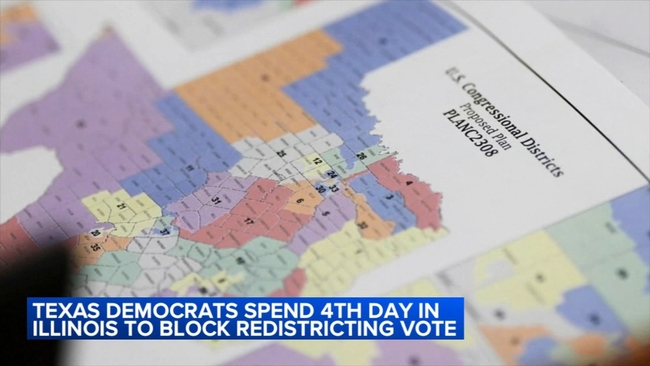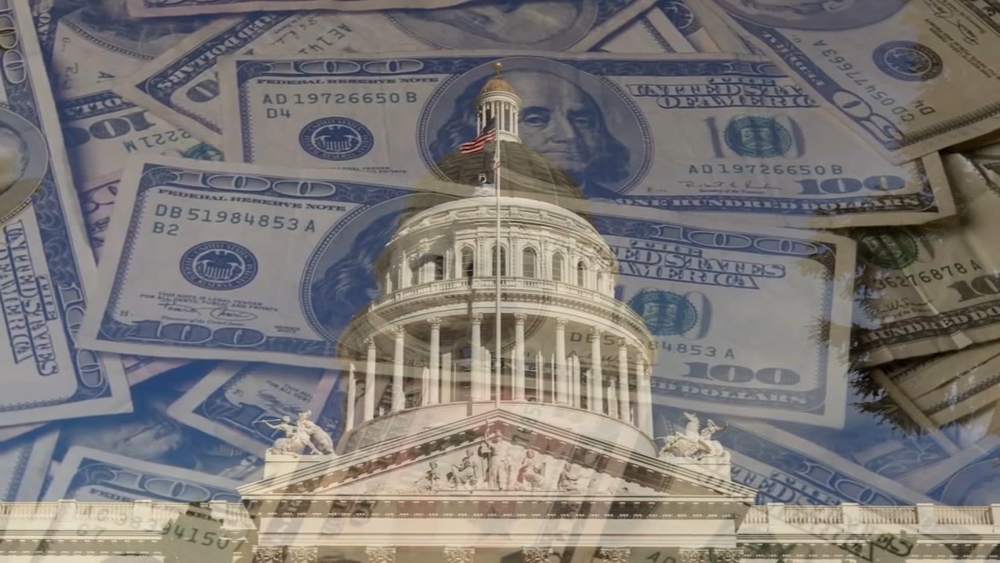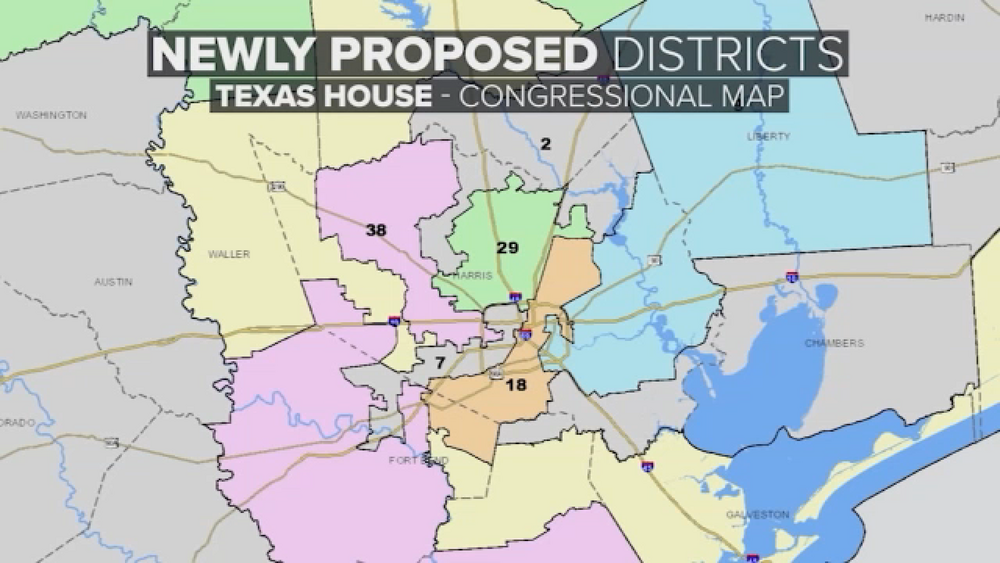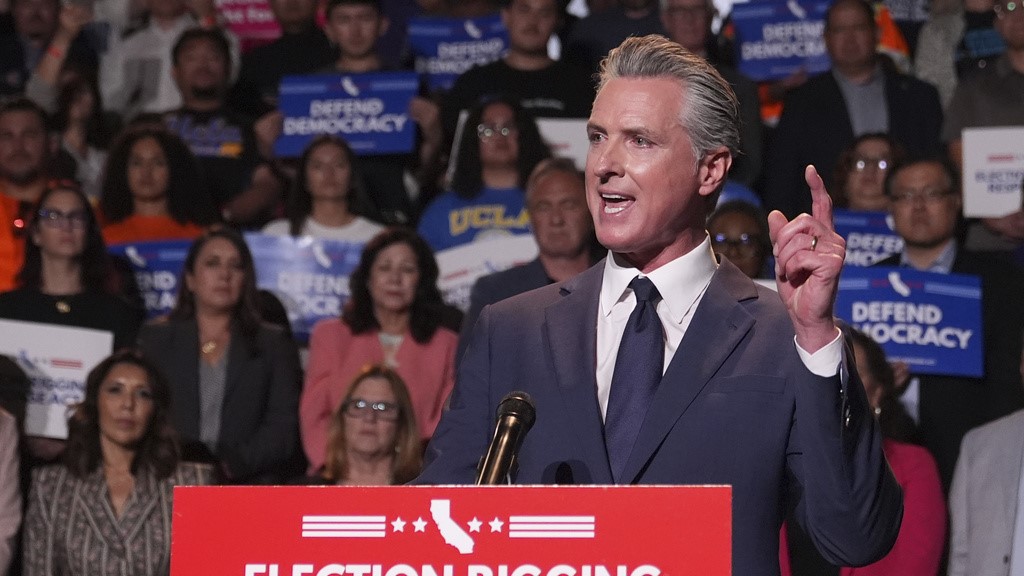Does Texas Gov. Abbott have the power to remove Democratic lawmakers?

AUSTIN, Texas -- Gov. Greg Abbott asked the Texas Supreme Court Tuesday night to remove state Rep. Gene Wu, chairman of the Texas House Democratic caucus, from his seat, arguing that Wu abandoned his office by fleeing the state.
Several legal experts, in interviews with ABC News, questioned the strength of Abbott's case to remove lawmakers.
Wu, alongside other Democratic legislators, left the state on Sunday to delay a Republican redraw of the state's Congressional districts by denying the House enough legislators to conduct business.
In an emergency petition for writ of quo warranto, Abbott argued Wu "forfeited" his office by fleeing the state, creating a vacancy that Abbott would then have the authority to fill.
A quo warranto is "a process by which it can be said that somebody is improperly holding office and should be removed," New York University professor of constitutional law Samuel Issacharoff told ABC News.
RELATED: GOP Texas map has Austin residents sharing district with rural Texans 300 miles away

The proceeding was "most heavily used" in the U.S. after the Civil War to remove former Confederate officers, he said.
Some experts appeared skeptical Tuesday night that Abbott's application of the proceeding to attempt to remove Wu from office had legal merit-though some said it's still possible the state Supreme Court would rule in the governor's favor.
The Texas Supreme Court is composed entirely of Republicans, with six of the nine appointed by Abbott.
"In Texas, the Supreme Court is directly elected in partisan primaries, meaning that Texas Supreme Court justices will seek to avoid doing things which might anger Republican primary voters," Rice University political science professor Mark Jones told ABC News.
Charles Rhodes, a professor of constitutional law at the University of Missouri, said that if the state Supreme Court found that a legislator's "office has been intentionally abandoned or relinquished, they do have the authority and jurisdiction to hold that the office is vacated."
However, Rhodes said that Abbott is seeking a ruling "that has no past precedential support in American jurisprudence."
"I have never seen [quo warranto] used in the history of America, to my knowledge, in a situation in which you have a legislator who is breaking quorum," Rhodes told ABC News.
SEE ALSO: Republicans are going outside of Texas to try to redraw more US House seats | What to know
David Froomkin, assistant professor of law at the University of Houston Law Center, argued that Wu has not legally abandoned his legislative position and created a vacancy.
The legal precedent-which Abbott's petition cited-determines "abandonment" based on "the intent of the official to abandon their position," and Wu has shown no such intent, according to Froomkin.
"What the governor is doing here is questioning, is challenging the legitimacy of his political opponents just because they oppose his legislative agenda," Froomkin told ABC News.
He added that the legislative branch has its own remedy to remove members, a two-thirds vote of the chamber to expel lawmakers, and that "it would violate separation of powers for the executive or judiciary to intrude on an internal legislative matter."
"Denying the governor a quorum was not an abandonment of my office; it was a fulfillment of my oath," Wu wrote in a statement.
The state Supreme Court has asked Wu to respond to Abbott's petition by Friday afternoon.
Texas Attorney General Ken Paxton, who is running for a U.S. Senate seat in Texas, argued that Abbott did not have the authority to file the petition and promised to pursue punitive action Friday if Democrats refuse to return to the special session.
Abbott has pushed back, arguing he does have such a right.
RELATED: Texas governor threatens to remove Democrats who left state over Trump-backed redistricting

According to Froomkin, Paxton's position as Attorney General does not give him more scope than the governor to remove Democratic legislators through the Supreme Court.
"It confronts the same separation of powers problems," Froomkin said, since removing legislators is "a matter for the legislative branch to resolve" rather than the judiciary or executive.
If the issue of removing legislators is eventually appealed to the U.S. Supreme Court, Issacharoff, the NYU professor, said they could take it up, since it would be a "powder keg" if other states' legislatures were allowed to follow Texas in mid-decade redistricting.
"If Texas does it, California does it, and New York does it, then other states will do it in retaliation, so on and so forth," Issacharoff said.
Issacharoff compared Texas's situation to the 2024 Supreme Court case Trump v. Anderson. In that ruling, the court stopped Colorado from removing President Donald Trump from the state's ballot as Republican nominee, noting they hoped to prevent a spiral of other states kicking candidates off their ballots.
At the same time, the Supreme Court said in a 2019 decision that disputes over partisan gerrymandering should not be mediated by federal judges.
"Federal judges have no license to reallocate political power between the two major political parties," Chief Justice John Roberts wrote in the opinion.










